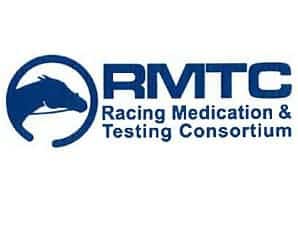
Racing Regulatory Veterinarians Support Compounding Rules
Mary Scollay-Ward, DVM; Rick Arthur, DVM; and Lynn Hovda, MS, DVM, signed the letter of support.

Mary Scollay-Ward, DVM; Rick Arthur, DVM; and Lynn Hovda, MS, DVM, signed the letter of support.

Pretreating an area with microneedles resulted in a 170% increase in the amount of lidocaine that permeated the skin.

The group wants to ensure agencies can sanction licensees who violate restrictions on illegally compounded drugs.

Regulators have preliminarily adopted a new system of minimum penalties for multiple equine drug violations.
Tildren is approved to control clinical signs associated with navicular syndrome in horses.
Drs. Rick Sams, Scott Stanley, Mary Robinson, Ken McKeever, and George Maylin have been appointed to the board.

The policy change date was adjusted to allow more time to clarify certain elements of the new rules.

The sales company is offering the testing based on new rules banning anabolic steroid use in racehorses.

The adoption of new model rules on medication use in racehorses has led to an increase in positive tests in Indiana.
The RCI has asked the Racing Medication and Testing Consortium (RMTC) to merge into a new RCI scientific advisory board.

The organization updated entries on ketoprofen, alclofenac, firocoxib, aminorex, and more.

Scientists behind a new study have identified behavior changes donkeys show when they experience pain relief.

More jurisdictions are operating or will soon be operating under all or part of the National Uniform Medication Program.

Drug screening can offer additional information pertaining to the horse’s ability to fit a buyer’s needs.

Up to 90% of horses suffer gastric ulcers. Is your horse one? Discover common clinical signs, treatments, and management strategies for horses with gastric ulcers in our step-by-step guide.

A horse owner wonders if there’s any danger using drugs that have past their expiration dates.
Stay on top of the most recent Horse Health news with
"*" indicates required fields